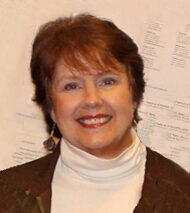
Nancy Huntting, Aesthetic Realism consultant, writes:
How can we see the world—all that’s outside us—more truly? How can we see ourselves more sensibly? Is beauty, the beauty of art, a guide for pride and happiness in a human being?—and in a nation? The good news is: there are answers to these questions. And that news is told of in “What Beauty Is.” This is the thrilling title of the ever-so-needed new issue of The Right of Aesthetic Realism to Be Known.
The commentary by Ellen Reiss begins:
Dear Unknown Friends:
We are serializing the historic 1956 lecture How Aesthetic Realism Sees Art, by Eli Siegel. In it, he shows stirringly, logically, with ease, scholarship, sometimes humor, that all art “is the oneness of the permanent opposites in reality as seen by an individual.” This talk is mainly about the visual arts. Many of the people attending it were working artists, and a pair of opposites Mr. Siegel speaks of throughout are those very technical opposites outline and color. They are, he shows, phases of another pair of opposites, which are technical too but also everyday, and are present in the state of mind of everyone: within and without. Our life is a drama, sometimes tumultuous, of what we see as within ourselves—our thoughts, our feelings—and a world we see as outside ourselves.
In the part of the talk included here, Mr. Siegel also comments on something which, at the time, it was fashionable to put forth with a certain triumph, smugness, even belligerence: that “You can’t explain beauty!” I love the way Mr. Siegel discusses that notion. Today it is not asserted so much; yet it is a notion had by millions of people. I have felt impelled to write a little about it here, because something like it is affecting America gigantically at this time.
Beauty & Truth
Whether or not a person says outwardly, “No one can explain what’s beautiful,” there is an assumption most people act on which is tantamount to that. The assumption is, “Critics can say things, but beauty is pretty much what I take it to be.” This viewpoint is in the phrase “Beauty is in the eye of the beholder.” It’s in the phrase “I don’t know much about art but I know what I like.” It may not seem terrible to assume that nothing definitive can be said about beauty; yet that state of mind has a likeness to the little expressed but widely had feeling about truth—“No one can tell me what truth is: truth is what I want it to be.”
The making what one desires, what pleases oneself, constitute what truth is, is taking place on a massive scale in America now. The truth about an election, about ballots, about vaccines, about a vicious assault against the US Capitol, has been made something one doesn’t have to see as existing: the truth about these and more can be made into something to suit oneself, one’s conceit, and one’s purposes.
There is an all-important difference between persons’ not knowing what constitutes beauty and their saying that therefore beauty cannot be defined….Read more